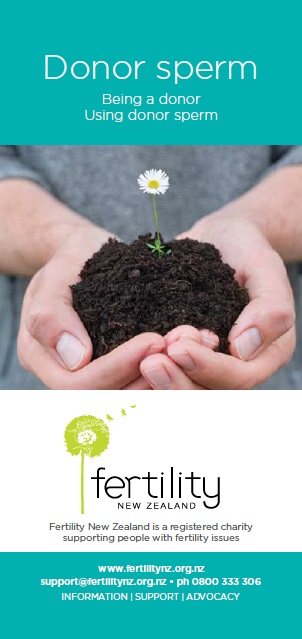Sperm Donation
The donation of sperm is a generous gift to people who may only achieve a pregnancy by using a donation.
New Zealand’s legal situation
In New Zealand, donors must be available for the donor children or their families to seek information. The Human Assisted Reproductive Technology Act (HART Act) 2005 created a central register of offspring and their donors. At 18 years of age (or younger in special circumstances) the offspring can access details of their donor if they wish and should be able to locate them. Parents of donor offspring can access the donor’s name once the child has been born, until the child reaches 18 years of age. Clinics suggest some counselling support for the offspring and their donors to help make the meeting successful.
Donation in New Zealand is done altruistically. However, reasonable expenses may be reimbursed to donors. An example of this would be transport costs to and from the clinic on days of donation or appointments.
Being a donor
Men who wish to become a donor make contact with the clinic to talk about the process of being a donor. Before they begin their donations they will need to complete blood tests, a semen analysis, a medical appointment and counselling about the implications of being a donor. This ensures the man is suitable and that he and his partner understand the implications of donating for the immediate and long term future. With this knowledge the man and his partner will be able to decide whether they wish to proceed.
If all goes ahead the man will begin his donations, the number of donations will depend on the quality of the semen sample. These donations are frozen and stored. Once these have been deposited there is a period of quarantine, before the sperm is released for use.
A donor can ask the clinic for the number of children born and their gender. Some donors volunteer information to pass on to their donor families. The clinics can facilitate any requests to exchange information.
Donors are able to restrict the availability of the donation to specific groups. Clinic staff will talk through these options during an appointment. Donors can nominate the number of families they are prepared to donate to. Regulations set the maximum at 10 families but the clinics use a lower maximum of 4-5 families.
Using donor sperm
It may be very distressing for a hetersexual couple to discover they will require sperm from another man if they are to achieve a pregnancy. They need to work with their counsellor to deal with their grief before they begin donor sperm treatment. Single women and lesbian couples who decide to proceed with this treatment have generally made a considered decision and feel fortunate to have this opportunity.
Recipients come to the clinic and work with the doctor, counsellor and nurse to understand the process and consider all the implications of receiving donor sperm. To do this treatment they need to have an understanding of the menstrual cycle, the hormones involved and the process of insemination. They learn about the HART Act, the selection of donors, the implications of a child having the genetic relationship to only one parent and discuss many other issues such as bonding with the child.
Having completed this they then are placed on a waiting list. Following selection of a donor, the recipients are generally able to begin to use their treatment with the next menstrual cycle. If they achieve a pregnancy, enough sperm is often able to be reserved for a second child. The HART Act and fertility clinics highlight that children within donor families will need to know their genetic origin or information at some stage. Most experts suggest that the earlier a child knows, the better. It is important that the recipients have thought through all aspects so they can feel confident about their decision and enjoy their children.
Families with donor offspring can approach the clinic for donor linking if they require health or other information. Counselling support can help ensure that both donor families and donors are comfortable with any contact. When people make the decision to have a child they develop dreams and expectations about this child. Being faced with the reality that they will not be able to have a child that is fully genetically theirs means they have to reshape their dreams and expectations.
Sperm donation has been available for years and there are many families created as a result of this generous gift who are enjoying their lives together. Donating sperm is an act of kindness and generosity which brings great happiness to the recipient family.


